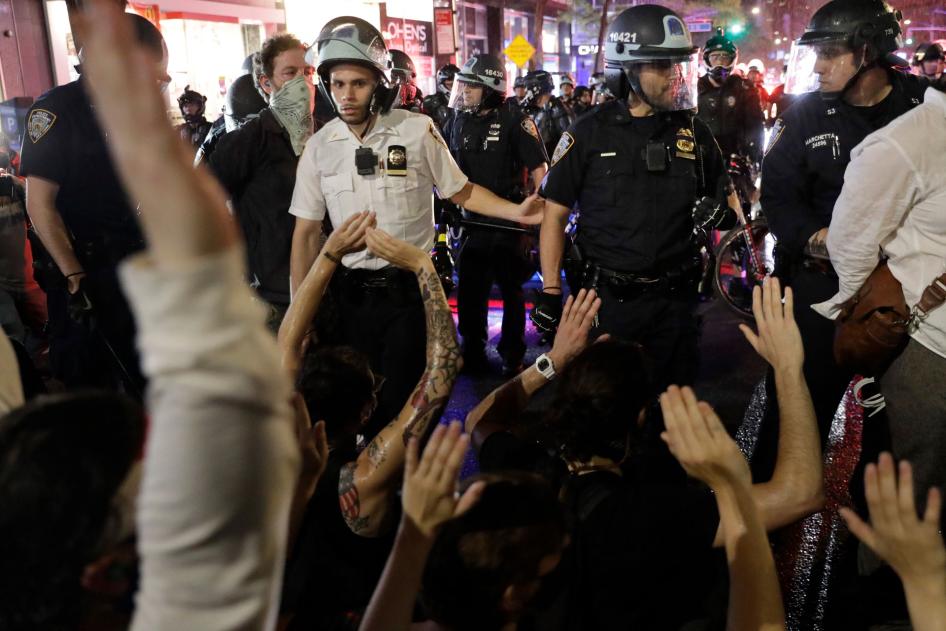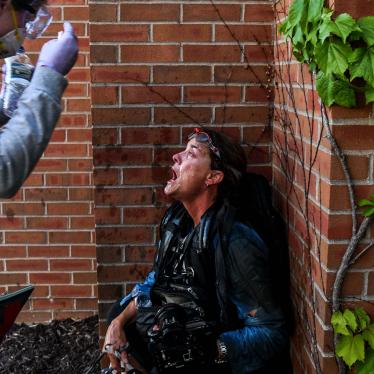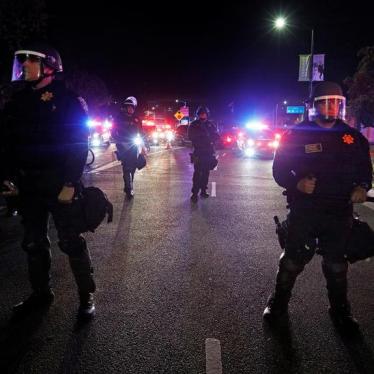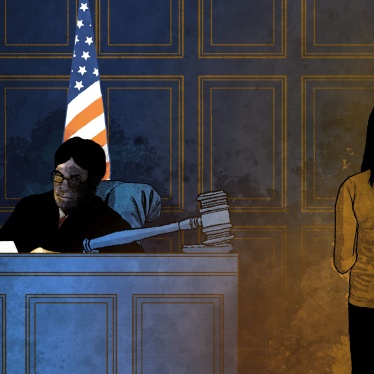Police conduct in the United States – including unprovoked beatings, excessive force, and arbitrary arrests – has come under intense scrutiny as protests erupted after the police killing of George Floyd.
Let’s add to this list the police’s actively endangering people’s health during a pandemic.
Across the country, protesters, journalists, and sometimes bystanders have been arrested in large groups – often for breaking curfews, blocking traffic, failure to disperse, or other minor offenses. Many were detained for hours in crowded cells with no masks, no hand sanitizer, and no way to stay apart. Police have reportedly torn the masks off some protesters when they were arrested, and many police officers seen at protests have not been wearing masks themselves.
A journalist in New York, Keith Boykin, described how he was filming protesters marching down the West Side Highway in Manhattan around 3:30 p.m. on May 30 when a line of police approached. They arrested Boykin and handcuffed him with a zip tie. Boykin said that when he told them he was with the press, an officer replied, “It doesn’t matter. You’re going to jail.” An officer pulled down Boykin’s mask, and since he was handcuffed, he couldn’t put it back on. After waiting in a hot van before being transferred onto a police bus, Boykin was eventually taken to 1 Police Plaza, the New York City Police Department’s headquarters, where he was put in a crowded cell with 34 people. Most of the other detainees didn’t have masks, and there was no soap or sanitizer to disinfect their hands. After six hours in police custody, Boykin was released.
“I had no opportunity to make a phone call, no one questioned me, no one read me my rights, and they were exposing me to coronavirus,” he said. “It shouldn’t be this way in America.”
A protester in New York, Andom Ghebreghiorgis, told me how police officers used a technique known as “kettling” with protesters in the Bronx on June 4, leaving them with no escape route just before curfew began at 8 p.m. He said the police officers then went on a rampage, “wailing their batons at protesters” and “indiscriminately pepper spraying people in an enclosed space.” Police rounded protesters up, handcuffing them with zip ties behind their backs and sitting them down on the street to await processing and transport. “There was a woman with blood gushing from her head, five or six rows ahead of me,” he said, “and a young woman next to me was lying down and unresponsive. The cops finally called in the EMT [emergency medical technician] to take her away when she started convulsing like she was having a seizure.”
Ghebreghiorgis was wearing a mask when he was arrested, but it fell to his chin because he was sweating, and his hands were cuffed behind his back so he couldn’t put the mask back on. He said it was impossible to maintain social distance throughout the 19-hour ordeal.
These mass arrests shouldn’t be happening at all – especially when people are exercising their fundamental rights to freedom of expression and assembly, and given the serious risks to public health of detaining people in crowded cells. Human Rights Watch has urged governments around the world to reduce their jail and prison populations, given the heightened risk of Covid-19 for detainees and staff. For the same reason, authorities should only engage in custodial arrests when strictly necessary.
The arrests and treatment of those detained during the protests also reveal deeper and more fundamental problems – that of an abusive law enforcement system that especially threatens the health and lives of black and brown people.










